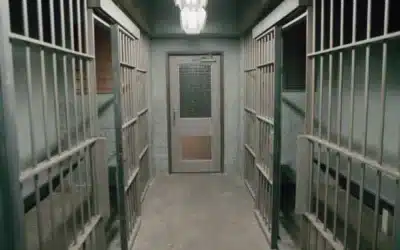Damascus, the Syrian capital that has as many as five million residents in the city and its surroundings, has now gone weeks without water. Al-Qaeda-linked rebels dumped diesel fuel into the water supply. Damascus gets nearly all of its water from one source: Wadi Barada. Wadi Barada has been occupied by rebel groups since 2012, and have made constant threats since then to contaminate the water supply, which they finally did just a couple weeks ago. Damascus has had to resort to using water trucks to supply the people there, as well as individual residents catching rainfall in a geographical region that has historically been affected by drought.
So why hasn’t the mainstream media covered this humanitarian catastrophe? Libertarians are all too familiar with mainstream media blackouts. Ron Paul would constantly be blacked out in the media during his record-breaking campaigns and Wikileaks showed that the media was trying to help democrats by pushing “Pied-Piper” candidates that gave Donald Trump a significant boost and intentionally left Ron Paul’s son Rand in the dark due to him being too electable.
As it turns out, media blackouts extend far beyond election coverage. Ever since the beginning of the Syrian conflict, the mainstream media has pushed for regime change in Syria, just like they did in Iraq and Libya. The reasoning as to why the media pushes for regime change seems unclear at first, but becomes much more clear when looking at where the mainstream media pulls their information from: pro-war think tanks. Max Abrahms, a terrorism analyst at Northeastern University, points out two major problems with these pro-war think tanks in regards to Syria:
- The same foreign nations that make large donations to these think-tanks (Qatar, Turkey, and Saudi Arabia), also happen to be the largest sponsors of rebels in Syria, including (if not especially) the Al-Qaeda linked jihadists.
- These same think tanks that inform the mainstream media on Syria and are funded by sponsors of terrorism also give our government US national security advice.
So when the mainstream media decides not to cover a humanitarian catastrophe in a city controlled by the Syrian government they have sought to overthrow, it runs much deeper than a simple bias. Those fully aware of the situation in Syria should’ve seen this blackout coming. While media went into full hysteria over Syrian troops recapturing Aleppo just a month ago, expressing humanitarian concern over the civilians who were finally seeing the end to the 4 year long conflict in their city, the mainstream media had ignored yet another city with millions of residents who had their water supply cut.
This time it was Government-controlled Aleppo. Aleppo had its water supply cut by jihadists in 2013, and the 2 million residents of the city went without water for over 18 months. The mainstream media didn’t report it because it was Syrian civilians who happened to live under the government who were suffering, instead of the rebels who share the same sponsors as their informants.
This is the same reason why they haven’t reported it on Damascus today. Now when the Syrian government makes a push to recapture Wadi Barada and the mainstream media criticizes their operations, just know that the water supply of 5 million people depends on it. Some news sources have already claimed that upwards of 100,000 civilians live in Wadi Barada, while a 2004 census revealed that less than 4,000 people live there. Similar to how they ballooned claims of the number of civilians living in rebel held Aleppo.
Potable water is something nearly everyone in the United States takes for granted, but is a very real problem for those living in Syria, and those in the mainstream media are trying to prevent you from knowing about it. While much of the recent focus has been on “Fake News”, it is much more important to examine how the major news sources watched by 90% of the public selectively cover conflict and therefore are distorting them to make the public follow the agenda of them and their sponsors without the people even realizing it. This has happened to all kinds of issues, and anyone who wants balanced coverage must resort to primary sources to get their information. It takes more effort, but it may be the only way to stay aware and not be taken advantage of.




























